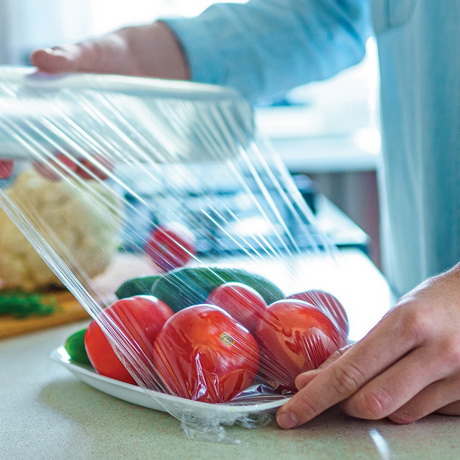
A team of researchers from Russia, Brazil, India, and South Africa has begun their work on innovative packaging for products — biodegradable film from organic waste. The Ministry of Education and Science of Russia has supported the project with a special grant. The researchers seek to protect food from pathogenic microorganisms. The new film will indicate the freshness of food and help reduce environmental pollution.
The team's project, Development and Study of Innovative Functional Bio-Food Packaging, won a grant from the Ministry of Education and Science of Russia. The research has brought together experts from a number of the BRICS countries.
Unsafe food frequently causes health problems. Packaging, most of which is made of plastic, protects food from contact with bacteria and microbes.
However, packaging materials are manufactured from non-renewable resources, such as oil. Such packaging protects food from external contamination, but is unable to slow down internal decomposition processes and prolong the shelf life of food. In addition, plastic bags, films and containers are rarely recyclable, and their decomposition can take several hundred years.
To address these challenges, researchers from the St. Petersburg State University together with colleagues from the Council for Scientific and Industrial Research (South Africa), the Limpopo University (South Africa), the Mahatma Gandhi University (India), the Federal University of Uberlandia (Brazil), and the Federal University of Triangulo Mineiro (Brazil) are working on a new “smart” packaging for food.
The team plans to develop innovative nanocoating — an additional edible layer in the form of a film on the surface of food products, said Anastasia Penkova, head of the research team, Professor of the Department of Analytical Chemistry at the St. Petersburg State University. They will use an eco-friendly nanocomposite, the synthesis of which is now underway at the university.
“A nanocomposite is a multicomponent material consisting of a polymer base (matrix) and a nanofill (modifier). Our nanocomposite will consist of carrageenan, arrowroot starch and nanocellulose with the addition of flower extract. These are environmentally friendly resources that are obtained from the remains of agricultural and food waste,” Penkova explained.
The film made of such materials, unlike other types of packaging, is completely eco-friendly — it consists of biodegradable substances, does not contain toxins, carcinogens, and decomposes without having a negative impact on the environment. Moreover, the use of such packaging will help cut down the amount of agricultural, food, and plastic waste in several times.
The innovative product will extend the shelf life of food due to antimicrobial properties, as well as slow down the rate of oxidation and reduce water loss during storage. The flower extract in the film will protect food from chemical contamination and infection by pathogenic microorganisms, and also prevent harmful bacteria and microbes from multiplying on the surface of food products.
The new packaging will have pH sensitivity to the environment, that is, it will be able to identify food rotting and change color when food products begin to deteriorate, and flower extract will also act as a pH-sensitive dye.


Comments (0)
Twitter
Facebook
Pinterest
E-mail